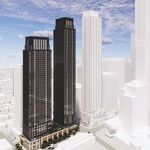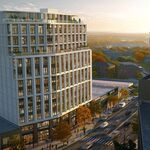Southern California’s biggest transit agency
retired its last diesel bus six years ago, capping a 15-year process to replace tailpipes that belched black smoke with quieter, cleaner engines powered by natural gas.
Now, Los Angeles County transportation leaders are working toward a bolder goal: buses that don’t pollute at all.
The Metropolitan Transportation Authority has begun to plan how to eliminate emissions from its fleet by 2030, a move that will require buying more than 2,300 buses that run on electric batteries or another form of zero-emission power, such as hydrogen.
Metro’s ambitious goal, at a time when no other major U.S. transit agency owns more than a handful of battery-powered buses, would make Los Angeles a proving ground for a relatively untested technology.
But the 2030 benchmark has prompted some questions from critics about how much Metro should spend on electric buses while the technology is still new and expensive. Supporters have said the agency’s investment could help a budding industry that pledges significant air-quality benefits.
“We have two choices,” said Metro chairman and Los Angeles Mayor
Eric Garcetti, who introduced the 2030 goal. “We can wait for others, and follow, at the expense of residents’ health — or lead and innovate, and reduce emissions as quickly as possible. I’d much rather do the latter.”...




